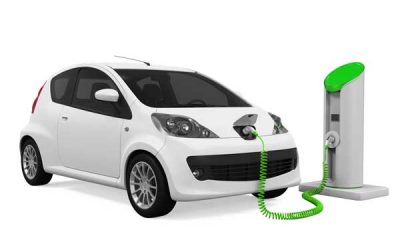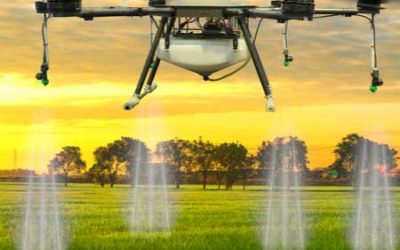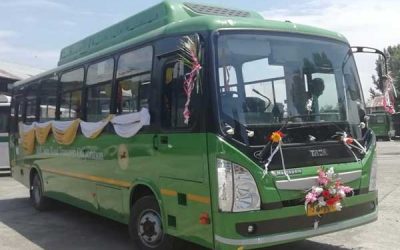Emerging technologies such as artificial intelligence (AI) and robotic process automation (RPA) are swiftly disrupting almost every aspect of our lives. It is about time that India gears up for AI leap too.
The capabilities of AI, in particular, are being widely tested by global organizations for automating tedious tasks, improving decision-making skills, and providing exceptional experience to their users. AI enables processing of data to provide intelligent insights and identify various prediction models. (See Accenture fortifies AI know-how with Byte Prophecy buy)
With the technology expected to transform several mundane jobs in future, the Indian government too seems to have woken up to the benefits of AI. It is making strong efforts to develop a robust ecosystem around AI, which is also touted to be a technology to watch for in the post-Covid-19 world. The technology has already been leveraged by many countries, including India, to fight the Covid-19 crisis and expediting the search for its treatment or prevention.
A new AI portal is born
Taking a cue from the global governing bodies, India has recently launched a National Artificial Intelligence Portal (http://www.ai.gov.in.) to promote and showcase the local AI-related advancements. The website has been developed by the National Association of Software and Service Companies (Nasscom) in consultation with the National e-Governance Division of the Ministry of Electronics and Communications Technology (MeitY).
This digital platform is part of the Indian government’s extensive focus on AI. It is expected to bring all the stakeholders—MeitY, NITI Aayog, Nasscom, and Department of Telecom (DoT), among others, on a single platform. It’s a much-needed initiative that could enable a regular dialogue with businesses and state departments around AI’s potential. This would also encourage private firms to develop innovative applications and new modules.
“India must be a leading country in the development of Artificial Intelligence in the world, leveraging upon its vast Internet-savvy population and data it is creating. India’s AI approach should be of inclusion and empowerment of human beings by supplementing growth and development rather than making human beings less relevant,” Ravi Shankar Prasad, Minister for Electronics & IT, Law & Justice, said, while addressing the delegates at the launch event of website.
India had earlier announced to launch the AI task force to develop strategies around AI. The government had also committed a significant proportion of Rs 3,063 crore Digital India budget toward AI advancement in the country.
Notably, India is not the first country to have launched a state-sponsored AI platform. In 2019, the USA had launched its ai.gov website to highlight AI initiatives taken by the Donald Trump government and federal US agencies. Similarly, countries like Singapore and Australia have already established nationwide programs in their respective countries to harness the potential of AI.
Embracing the new world
In the post-Covid-19 world, the adoption of AI-based solutions is expected to be pervasive. Not only could AI help meet new services demand, but also enable enterprises and governments to be ready for any such future crisis and ensure employee safety.
For instance, AI technology can apprise farmers and respective authorities in advance about crop anomalies by interpreting various algorithms through satellite images or sensors in advance. This can help streamline supply chains and enable farmers to take timely actions to protect their yields, especially during unprecedented times like today. Similarly, by using AI-driven predictive models, the government can also gauge the number of hospital beds required in case of the second or third wave of pandemic outbreaks in the future.
There are many enterprises that are ahead of the curve and scaling-up their conversational chat-bot capabilities to address customer queries efficiently and provide a customized experience. An example is Grofers, a leading e-commerce company in India, which has been able to deliver essential goods to its customers and record their complaints efficiently, even during the lockdown period, by investing heavily in machine learning.
Similarly, Apollo, one of the largest healthcare group in India, took some revolutionary AI measures last year that is helping them address diagnosing Covid-19 patients. It has collaborated with Israel-based company Zebra Medical Vision to integrate a machine-learning solution that evaluates computed tomography (CT) of suspected Covid-19 patients and recommends a necessary course of medical care.
In an interesting development, Reliance Industries Limited (RIL) recently unveiled the country’s first AI-enabled chatbot on WhatsApp. The chatbot address queries of stakeholders regarding RIL’s Rs 53,125-crore rights issue, through which the company plans to make its balance sheet debt-free by March 2021.
As social distancing measures and remote working are likely to remain in practice for a long enough time, technology leaders would be keenly looking at AI-based innovations to monitor the health of their employees and adapt their HR strategies in case there are increased risk to lives.
Looks like the AI technology is on an accelerated path to becoming mainstream in India. Let’s hope it helps transform our world into a safer and more prolific.














0 Comments